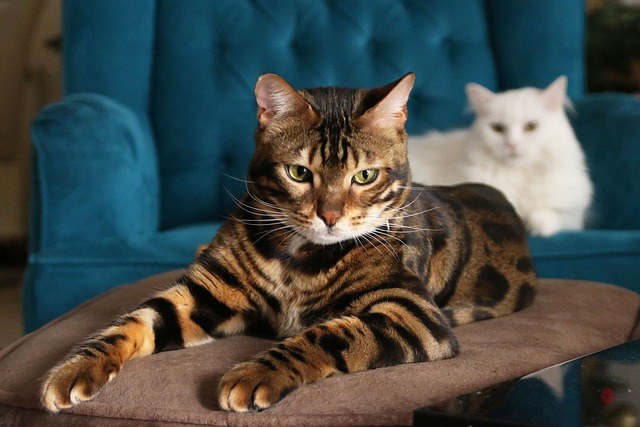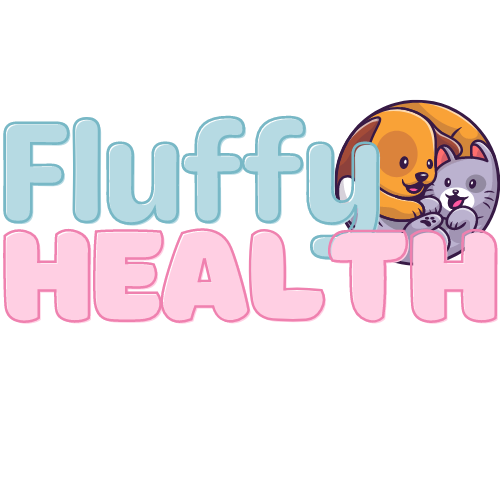When can kittens eat adult cat food is probably one of the most frequently asked questions by new kittens’ owners. When you first get a kitty, you must be vigilant when it comes to its diet and lifestyle.
Yes, as a fellow cat owner I want to tell you Congratulations on being a cat owner. But, you must know that kittens need different nutrition for specific reasons, and you must pay extra care to their needs for your kitty to grow healthy and well.
In this article, we will present to you all the information you need to know about kittens’ food and, as a result, answer your question of when can kittens eat adult cat food.
Table of Contents
The Difference Between Kitten’s Food And Adult Cat’s Food
Adult cat food and kitten’s food don’t differ only in price. Kitten’s food is specifically designed for cats at this particular phase of their life. I mean, you can clearly read on the label that this food is for growth and reproduction while the box of food for adults states that it is for “adult maintenance.”
Think of it as having a new human baby, their food is different than ours. Also, their nutrition needs are different than that of an adult man or woman. The same goes for a kitty, they have different needs for this phase of their life.
These foods are well studied and tested several times as well. So you can trust them with nurturing your little kitty. Regarding the ingredients, kitty food and adult food differs a lot in the proportions of proteins and fats they contain. For example, Kitten food must have at least 22% protein and 8% fat.

On the other hand, Adult cat foods have to be of 18 % protein and only 5 % fat, as claimed by the U.S. Food and Drug Administration. Indeed, the extra amino acids and essential fatty acids are included to help your little one with healthy tissue growth.
If your kitty doesn’t get enough protein, it won’t grow properly; on the other hand, adult cats don’t need this extra nutrient in their diet.
Also, your kitty is in a growing phase, you should pay attention to its bones and teeth growth. Your kitty also should be supported with Vitamins and Minerals, so it grows stronger, and you won’t have to face health problems in the future. Thus, kitten food is well enriched by it.
For example, we find that kitty food contains a lot of calcium and phosphorus because it is essential for them. On the other hand, we notice that adult cat food does not contain the same amount of vitamins and minerals simply because they no longer need to grow anymore.
If we are talking about calories, kittens need a lot. So, your little kitty needs more than double the amount of calories an adult cat needs due to their excessive energy and playfulness. Indeed, you can guess this from the boxes of kitty’s food. In these special food made for kitties, you can see that there is an increased amount of proteins and fats that is necessary for kittens.
This will give your kitty extra calories. No worries, these excess amounts of calories will ensure that your kitty will grow in excellent health.
Plus, these increased amounts of protein, fat, and calories are the ones responsible for your little one’s energy. On the other hand, if you constantly feed your adult cat kitty food, then your cat may get obese and face complications related to this problem such as heart diseases.

What Nutrients Does Your Kitten Need?
Kittens are known to have more energy than older cats; they are both highly energetic and playful. Also, kittens need even more energy for healthy development and growth.
Our fluffy kittens have their own nutrient requirements than adult cats do. Primarily, Your kittens need the following within their food:
- Protein, fat, and calories more than adult cats.
- For brain and vision development, your kitty needs Omega fatty acid DHA.
- As for your kitty’s immune system, your kitty needs vitamins and minerals.
- Your kitty needs the right amount of calcium to phosphorus ratios.
When Can Kittens Eat Adult Cat Food?
Mainly, that’s not a good idea for your kittens to eat adult cat food. Also, it is always best to consult your veterinarian before deciding to change your kitty’s diet.
But now that you have known that your kitty needs a special diet and it can’t be fed randomly so it can grow healthy and well, you should have chosen the components of its diet consulting your vet, of course.
After this, you should continue feeding you little one until it is about 80 to 90 percent of his expected adult weight. (That depends on the breed of your cat obviously). Mostly, this happens around 9 months of your cat’s age.
Sometimes, vets ask you to wait till your cat is about 1 year old. Hence, you should contact your vet before considering any changes in your cat’s diet, because every cat is different.

How To Shift From Kitty Food To Adult Food?
Now that you are aware of when can kittens eat adult cat food? You should know about how to transition from the kitty food to adult one.
Obviously, this cannot happen overnight, for that it may cause digestive problems to your adorable kitty. Therefore, it is highly essential that you shift gradually from a kitty’s diet to an adult one.
As you know, your little kitty’s stomach is filled with bacteria and yeast that help it to keep digesting the food it consumed and keep the immune system healthy. And because cats are not like humans concerning food consumption, they cannot switch from one diet to another every day or suddenly.
They consume one type of diet with the same essential ingredients for an extended period. In effect, the sudden switch in their diet may cause a lot of trouble for your kitty, including vomiting and diarrhea.
Because over this specific period, cats develop particular bacteria and yeast to digest their diet, when you suddenly switch what they were consuming, their system will not have time to adjust the bacteria as fast.
Therefore, it is highly recommended that you do a slow transition from kitty food to adult cat food. Generally, the transition should be done in 7 days.
However, it is better if you consult your vet, as diet transition may differ from one breed to another. Nevertheless, here is an alternative plan that is quite successful as reported by many pet parents who have altered their kitty’s diet to an adult one:
- Day 1 and day 2, add in your kitty’s dish quarter (¼) of the new diet (adult cat food) to three quarters (¾) of the old diet that you already use.
- Days 3 and 4, fill your kitty’s dish with half (½) of the new diet to half (½) of the old diet.
- Days 5 and 6, start to add three quarters (¾) of the new diet to a quarter (¼) of the old diet.
- Day 7, transition entirely to the new diet and add the full amount of adult cat food your kitty needs.
Finally, I hope you found this article “When Can Kittens Eat Adult Cat Food?” informative and helpful. Also, if you have more information related to this article, write them down below in the comment section. So, all cat owners will benefit from that.
You’ll Also Love These Posts:
Studies have shown if you like this blog article — you will also love the following posts.

